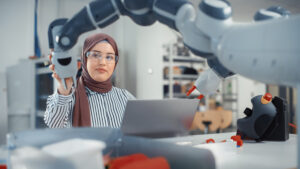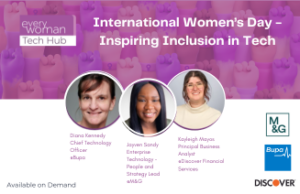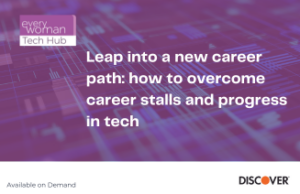As Chief Principal Engineer at NASA’s Virtual Reality (VR) lab at Johnson Space Center in Houston, Texas, Evelyn Miralles helped train astronauts to spacewalk.
Now the VR pioneer has turned her vision to strategic scientific initiatives in higher education at the University of Houston. We talked to her about the big questions around modern space exploration, the misconceptions people have about computer science — and why people will always be more complicated than machines.
What do you do in your role on a daily basis?
My main role is organising and identifying strategic scientific initiatives that affect the whole university, involving many different areas and technologies and showing why a particular initiative is important. Right now, we have about 12 different initiatives underway, including a new Planetary Sustainability institute and a geospatial information initiative hub for data analytics in geo-graphical content display. That is something that has never been institutionalised at the university before — and was only ever used by one faculty at most.
In my previous role as Chief Principal Engineer for the virtual reality (VR) lab at NASA, I pioneered VR technology with my team to immerse astronauts into the environment of space, and train them for things such as spacewalks. I was the prime communicator between our team and the flight directors and also created a vision for where this VR technology was going, including its use in the rest of NASA in terms of human space exploration. In 2019, I knew VR was becoming more commercial and what we were doing could now be replicated and at that point I was given an opportunity to move roles and create initiatives for higher education. The blend of vision and practical innovation needed in both is where these two roles converse.
What is the biggest misconception people have about your role or job function?
People think that coding is easy and it’s not. Years of open development in coding across the world has made it a little easier now, but ultimately, thinking about a problem in an abstract way and being able to programme it in modules and reuse partial modules is very complicated. When people code now, they code at higher levels because we have basically implemented layers of information over the years below it. I do encourage people to learn to code though as it creates an opportunity for you to enhance your brain and use other parts of it. It’s like learning another language.
What are the core skills you use on a daily basis that are essential to your success — and how do you cultivate and expand on those skills?
In my present job, leadership and communication skills are vital, as is keeping priorities in focus. Leadership is important in creating vision because you have to show how something could be done and why — and how you bring people along with you is very important. I am also always researching and learning too. At NASA, I was in a state of constantly researching and looking for information and in this position, it’s equally, if not even more important. I’m considering a broader area of knowledge and implications here, not just space but human science, education, engineering and computer science as well as business implications. I have to keep reading about the applications and advancements of new technologies so that I know how to apply them in the strategy and what is actually possible in the technology itself, based on my real-world experience.
What’s the biggest challenge you have in your role presently, and what’s your approach to meeting that challenge?
People will always be more challenging and complicated than machines because they all have their own perspectives and agendas. How do you leverage and lead all that? Managing people at any level toward a vision is complicated. In my career, I have also had complication just through being a woman. At NASA, I had to be really knowledgeable about anything we were talking about because I was always being asked a little more about things as a woman. The challenge now is slightly different; it is about showing that although I don’t come from an academic background, I still know how to lead and have a vision for a university.
Thinking about your career going forward, how are you actively preparing to continue being successful?
In space I’m looking at the implications of going back to the moon: how are we going there, what regulations are there, how many countries are going to be part of this, is it feasible to do it in four years? I’m still involved with space and with NASA and I do a lot of specific reading to ensure I can continue to be at the centre of conversations about space exploration, which are increasingly complicated. We have a space station with 16 international partners now, for example, so questions such as, ‘what will happen when we get to the moon and find minerals?’, for example, need to be answered. I want us as humans to go to the moon, and to build something there, but before we do that there are many other important things that are going to have to be very clear.
What’s your number one ‘get that job’ tip that’s worked for you?
Be prepared and know your content. And obviously have the confidence to go out there and talk and answer questions. As women, we often overload ourselves with knowledge, something men don’t tend to do. The key is just to be knowledgeable about your content but not overreach. You don’t have to be everything to everyone. I see a lot of women trying to do it all and you don’t have to that in order to be successful. Just pick one or two of the subjects you enjoy— enjoying what you’re doing is so powerful. It is what gets me ready because if I’m not enjoying the subject that I’m going to talk about then I’m not going to be passionate about it. And if I am enjoying it, I don’t get intimidated either.
What’s been the biggest change in the tech industry since you launched your career 27 years ago?
I was at NASA when the breakthrough of the internet happened in the late ‘90s — I had access to the internet through NASA at the time but not many other people had it. Up until then it took real effort to share content with other engineers around the world and collaborate before the internet really started up, so that was a huge change. Another big change has of course been VR, which is now exploding commercially. Nobody knew that VR was useful for space exploration until I went to a conference in California in 2014 to do a presentation. When I finished, I had a line of people from the military to company directors, saying they had no idea of the potential, but we’d been working with this tech since 1992. S adly, something that hasn’t really changed is the industry gender balance. Our NASA team had six engineers and for many years I was the only women. There are still so few women in coding or engineering and that’s bad because software development has an implication in so much of our lives. Right now, we only have one side of the equation. I often think to myself; how did I get into computer science when I’m very social and artistic? Perhaps I need to find the reason in order to help other women to think, ‘This is for me.’



